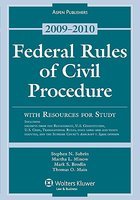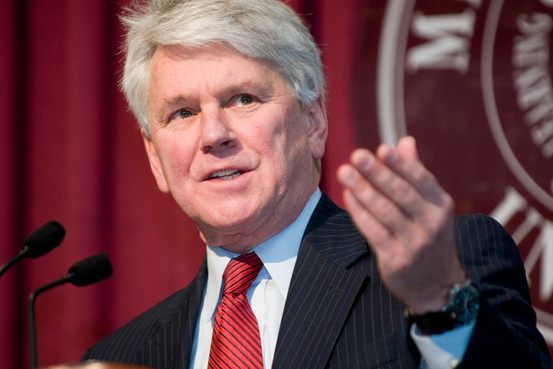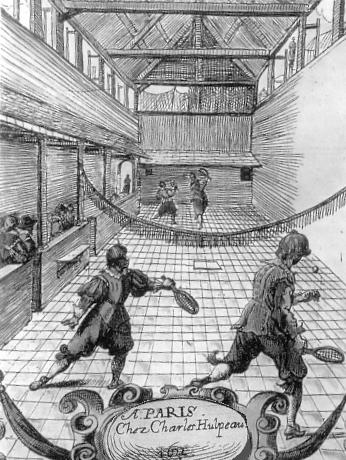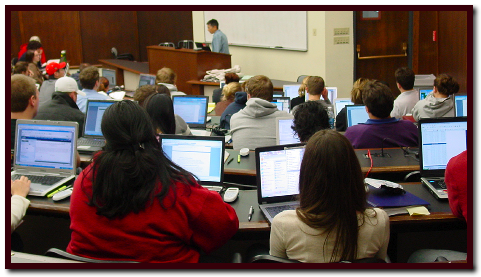« March 2010 | Main | May 2010 »
April 30, 2010
Sarah Kate Silverman for Congress, or Queen, or Something.
Right now, America needs shock troops. Yanks don't think much on their own anymore. So Sarah's our girl.
The Future is Not for Weenies. Sarah Kate Silverman doesn't have President Obama's no-spine/sand/stones problem; she would man up to Congress. Sarah would just say it. It's not just Obama. Even our best politicians can't say what they feel and think. No-Stones is an epidemic. You can't say anything interesting at work. Even Alpha males are on the outs--we are breeding them out. Our younger workers were brought up on gender neutral role models.
What's up? Are we turning into Canadians and the Junior League?
Keep reading. We'll get to Sarah.
We hope for a different kind of culture revolution. We seek to include different ideas and expressions: old, new, objectionable, dumb-downed, bland, trite, creative, stupid, smart. But let's not leave anyone out. This is America, Jack.
For example, after the Revolution, when politically-correct culture, and other goofy forced-conformity social agendas wane and disappear, you will be able to say what you want.
Okay, anything that puts kids at risk--and about Mothers--will not be fair play. But you will be able to use words like "secretary", "stewardess"--and even "stew", if you've had a few drinks on the plane.
You will have choices.

Sarah Silverman is saucy and attractive. If you don't think that's very important, you're wrong--but you can write us an angry letter, not invite us to parties, or tip off Nina Totenberg and NPR.
If you're a lawyer, you will start using the term "Chinese wall" again. You will be able to swear, and loudly, in the workplace, and start war stories with: "You know, I had this case in the Southern District, back in 1987, when men were men."
After the Revolution, you will be able to flirt, and be playful and even a tad eccentric, at work.
If someone you work with is lazy and disorganized, you will be able to say things like, whoa, that dude Josh "is lazy and disorganized" rather than have to say it's so awesome that Josh is "low profile/independent/a team member requiring minimal face time/empowered by his flexible hour arrangement/a pioneer in work-life balance".
The expression "Not Work-Oriented" will be okay, too.
Using "not work-oriented" rather than "lazy" is also a proven attention-getter. Granted, it's too indirect. It's soft. Sounds a bit PC. But think of it as a transitional term you can employ until people start saying what they mean.
For example, we have used "not work-oriented" frequently in recent years in telephone conversations with people, unknown to us, who check references, of former employees, who we know too well. Saying that your ex-employee Kendall, who had top grades at Dartmouth and Duke Law, and had interviewed well, is "not work-oriented" is easier, faster and frankly more fun than struggling through on the phone with:
Mr. Bloor, it just wasn't a 'fit'. Kendall has many gifts. But we always knew she would flourish more in an alternative work setting where, you know, team members were, uh, not required to do any work per se, or actually perform, or add value. You know what I mean.
After the Revolution, you will also be able to use your real name when you give your opinion in the ether of the Internet.
In fact, anonymity will be banned--and reserved for rape victims, Iranian and Cuban dissidents, Ned Beatty "Deliverance" casualties, and the ballot box at primary and general elections. You will be able to utter all manner of potentially rude, offensive, defamatory and even straight-up tacky things--but you will take responsibility by backing it all up with your real name.
Males will be different. My own offices over the last 5 years has been full of "sweet" and "dainty" males who, frankly, I am a bit nervous about being with at night. They are not gay, even though at first I thought a lot of them were. (It's natural to wonder--so no letters, please.) They are not show-tunes flashy or YMCA-esque or anything. It's just that they are way too "nice".
Way way too nice. Someone did a terrible thing in raising them. They are confused. The don't get what is okay/not okay about being a human being. They don't even swear well. The are not warriors. They are stone-creepy "men".
After the Revolution, we'll get some of the more boorish and traditional--but at least authentic--males back. That would be "nice", too.
More great news: In the New Order of Things, long after PC culture has dissipated and died, the Seas will not turn Red. No One will go to Hell. The Family Unit will not Implode. The Clintons won't Abduct Your Kids.

So....you get the idea. We don't like "PC culture" that much--sane First Amendment people of any political persuasion never do unless to make fun of it--and so we do cherish Sarah Silverman.
Right now, America needs shock troops. Yanks don't think much on their own anymore. We are too bland and nice. Too consensus-driven. So Sarah's our girl.
Besides, Sarah is saucy and attractive. If you don't think that's important, you're wrong--but you can dash off an angry letter, not invite us to parties, or report us to Nina Totenberg and NPR.
Silverman's also a fine comic, writer, actress, musician, and rebel's rebel who never met a taboo she did not like.
While at first blush Silverman's humor may seemed based on stereotypes, she's smart and ironic, not mean, and an unrelenting satirist of life and priorities in America.
Meet Lenny Bruce's adorable grandchild who has escaped from Scarsdale, New Canaan or Shaker Heights and now has a bunch of uncomfortable questions for us all. She's going to ask them, e.g., "Sell the Vatican, Feed the World".
Let's see, what else?
Her sister is a Rabbi. But Jesus is Magic? She's ethnically Jewish--but for years allegedly wore a St. Christopher medal from her boyfriend Jimmy Kimmel ("It was cute the way he gave it to me. He said if it doesn't burn a hole through my skin, it will protect me...").
She claims ancestry from Hungary, Poland, France and Slovakia. She does not drink. For you snobs, she graduated from a prep school in New Hampshire. She attended NYU. She turns 40 this year.
How about this: Can we run her for Congress in, say, California, New York, or New Hampshire, this year or 2012?
That might help move things along. That would be "nice".
Posted by JD Hull at 12:59 AM | Comments (0)
April 29, 2010
Smaller, Nimbler and Excellent Goes Global.
Maybe you need to get out more? We estimate that worldwide there are now at least 400 international law groups and alliances which count law or accounting firms as members. Some cover or focus on regions (e.g. Latin American, Western Europe, Greater Asia); some specialize (IP and IP enforcement); many take on the whole world (remember the goofy term "full service"), with members in as many as 100 different cities worldwide.
Some, of course, are older, better organized and staffed, or more tightly-knit, than than others. Hull McGuire has participated actively in and used two such groups since 1998, including the IBLC, an alliance based in Salzburg, Austria. IBLC has 100 firms (most of them longstanding) and 1500 professionals.
International groups are nothing new. But they grow in number and usefulness as two things occur: (1) technology continues to level the playing field in the competition for the best clients, and (2) higher-end lawyers form boutiques, boutique "clusters", and firms between 5 and 250 (read: smaller) lawyers to service those clients, often at rates comparable to "large-firm" rates.
No matter what billing regime or model is used--hourly, flat or hybrid--the idea is value. The best thing? As firms "unbundle" their best practice areas to the global markets, sophisticated clients are offered the ultimate menu.

Posted by Holden Oliver (Kitzbühel Desk) at 03:50 AM | Comments (0)
April 28, 2010
Goldman on Jenkins Hill.
Tuesday's hearing was an attack not only on Goldman but on short selling itself.
--Washington Post
See "Goldman Sachs: What to Make of the Circus?" Securities and corporate governance hand Broc Romanek, a veteran of the SEC's Office of Chief Counsel, and former in-house, has collected some of best coverage of Tuesday's marathon hearing before the Senate Permanent Subcommittee on Investigations, plus some of the better earlier coverage, at his TheCorporateCounsel.net.
Posted by Rob Bodine at 11:59 PM | Comments (0)
Pinch us: Key FRCP deadlines changed big-time on December 1, 2009.

The 10-day post-trial deadline is now 28 days. While the work of the Judicial Conference's five Advisory Committees never really stops, big changes to federal court rules, including the Federal Rules of Civil Procedure (FRCP), don't occur that often. The newest amendments are "technical amendments"--but the changes are anything but technical.
FRCP. Rule 6, FRCP, the general "time counting" provision, and post-trial Rules 50, 52, and 59, are among the rules changed. Gone forever in Rule 6 is the much relied-upon (and, for many, much beloved) "11-day rule" in subdivision 6(a) adopted in 1985. It was designed to take the hardship out of 10-day post trial deadlines, i.e., don't count weekends and holidays for deadlines of 10 days or less.
But you no longer even need the 11-day rule that was in subdivision (a) of Rule 6.
In the new provisions, the Advisory Committee on Rules of Civil Procedure gave litigants more time (a lot more) to file motions for judgment, or for a new trial, under Rules 50 and 59. Beginning on December 1, the time to file after entry of judgment was 28 days rather than 10 days.
Two years in the making, the changes were signed into law (H.R. 1626) by the President on May 7, 2009, and became effective December 1, 2009. There are also significant changes to some of the time triggers in the appellate, criminal and bankruptcy rules. All are part of the Judicial Conference's "Time-Computation Project".
Sources. The D.C office of Chicago-based Mayer Brown published an advisory to the in-house community on November 30, 2009. It summarizes changes to the civil and appellate rules. See also the April 2009 summary at Smart Rules. The popular Cornell Law School site on the federal rules put up all the FRCP changes by December 1, but is still working on getting the Advisory Committee Notes into it.
The most complete Advisory Committee history and Congressional legislative history of the amendments is still at the federal rulemaking section of the U.S. Courts website.
Posted by Holden Oliver (Kitzbühel Desk) at 11:59 PM | Comments (2)
The three most significant news items (so far) of April 2010.
1. ABA's Law Practice Management Section rolls out special "diversity strategies" edition of Law Practice Today webzine for April 2010.
2. Matt Damon, Wife Expecting Another Baby. People magazine
3. Vermont Man Reunited with Turtle. NBC
Posted by JD Hull at 12:59 AM | Comments (0)
April 22, 2010
What goes around: Greg Craig and President Obama

An epic battle starring limousine liberals? Greg Craig, the former top lawyer in Obama's White House, will represent Goldman Sachs Group in the surprise SEC fraud action concerning complex mortgage-backed securities that were structured and marketed by Goldman Sachs for one of its hedge fund clients. The SEC complaint alleges that Goldman Sachs failed to disclose that the program of securities it devised "bet against" mortgage securities Goldman was also promoting.
Craig, who recently moved from Williams & Connolly to Skadden, is widely seen as being pushed out of Camp Obama last Fall by pragmatists who didn't like the strict timeline he proposed for closing down Guantanamo Bay's detention facility. And this week the President, although carefully choosing his words, morphed into an anti-Wall Street (and therefore anti-Goldman) mode as he pushed for legislation to more tightly regulate Wall Street firms. Showdown with the old Boss?
It's interesting news. The SEC, an independent Article II agency and quasi-court created by the Article I Congress, it is argued, technically does not work for the Article II White House. So there is apparently no revolving door problem for the steady and mega-charming uber-WASP Greg Craig. Really? True, Craig is a lawyer, not a lobbyist, and the White House is not seen to control much of what the SEC does.
Well, we hope he's not caught in the ethics net because we like watching Craig, a Boomer's Boomer, work.
Craig is a youthful guy in his sixties who won't whine about working past 7:30 PM. We currently have to work with people who will be "stressed" into early retirement by 38. But Craig is one of us. For the first time in decades, WAP? feels like going to church. Or something. Maybe just the Old Ebbitt. See at Politico "Goldman Sachs Taps Ex-White House Counsel". Excerpts:
On Friday, the SEC charged the firm with securities fraud in a convoluted subprime mortgage deal that took place before the collapse of the housing market.
Next week Goldman Sachs CEO Lloyd Blankfein will face questions from the Senate Permanent Subcommittee on Investigations, which is looking into the causes of the housing meltdown, the source said.
In Craig, Goldman Sachs will have help from a lawyer with deep connections in Democratic circles.
And:
"A former White House employee cannot appear before any unit of the Executive Office of the President on behalf of any client for 2 years—one year under federal law and another year under the pledge pursuant to the January 2009 ethics E0," said a White House official.
The official also said that the White House had no contact with the SEC on the Goldman Sachs case. "The SEC by law is an independent agency that does not coordinate with the White House any part of their enforcement actions."
Posted by JD Hull at 11:38 PM | Comments (0)
April 21, 2010
Law libraries poised to make comeback.
No names. Meet me at the Federal Digest alcove around 6:30. Wear red pumps or I won't show. I'm watching you.
Books and nooks. The way we use them as a substitute for thinking, computers have made everyone dumber anyway. Real lawyers still take advantage of books. But do they really take liberties with library staff? We've been trying to research, as it were, the librarians themselves. See, via our friend Redford, the UPI piece Survey: Librarians Get Frisky In Stacks.

Posted by Holden Oliver (Kitzbühel Desk) at 12:53 AM | Comments (0)
April 20, 2010
The Other Easters.
Old Roman and Pagan versions of Easter are rowdy, have just as many fairy tales, and are probably lots more fun. Rebirth and renewal. Does it matter how you get there? We suggest services here.

Posted by Holden Oliver (Kitzbühel Desk) at 11:59 PM | Comments (0)
April 19, 2010
Île Saint-Louis: Pay full price--but savor the rudeness.
Welcome back, Monsieur Hool. As before, three cats or two waitresses in room. Remember. You must choose. This is Hôtel du Jeu de Paume, the non-oath version. Erected in the 17th century, it once housed a tennis court built by Louis XIII, king from 1610 to 1643. Beams from the early 1600s cross the ceilings. An interior garden. The walls: old books, newer original art.
Neither Left or Right bank. Save for your 6th trip to Paris. The longstanding and competent staff takes a "working" dim view of both Americans and the English. They are wonderfully rude, Paris smart, and Yankee-style industrious. A haughty Labrador even lives here full-time. Be late to breakfast at your peril. Hull McGuire's hands-down favorite since 1996.
Brits never stay here twice. Too French. The staff does not just smile when it is says no; it laughs.


Posted by Rob Bodine at 11:59 PM | Comments (0)
April 18, 2010
Sarah Silverman's 100% sane reaction to Pope's Malta promise.
Silverman: Something more comprehensive, maybe? Good news: Benedict said something in Malta (MSNBC piece). Bad news: Way too late and no one believes him even a little. This is not our kind of Pope yet. Too bad. As religions go, his started out as one of many good ones. They are only as holy as their leaders.
Do all organized religions via their leadership break bad? And go jack-ass on us? One interim option: Read Cicero instead, and do the Antler-Dance. See also "If you’re still Catholic...you must be on crack" at Marc Randazza's The Legal Satyricon.
Posted by Holden Oliver (Kitzbühel Desk) at 12:00 AM | Comments (1)
April 15, 2010
Well, do they, punk?
Customers, clients, buyers: the Keepers. "Do Your Best Customers Know They Are?" St. Louis-based Matt Homann asks us at his enduring the [non]billable hour. A gem.
Posted by Holden Oliver (Kitzbühel Desk) at 11:59 PM | Comments (0)
The Real Tax Day: February 3, 1913 and Amendment XVI
The Congress shall have power to lay and collect taxes on incomes, from whatever source derived, without apportionment among the several States, and without regard to any census or enumeration.
April 15 has been federal Tax Day--now "Cyber Tax Day"--for individuals in America since 1955. While the income tax system really started here during the Civil War, it got jump-started by the 1895 U.S. Supreme Court decision (5-4 vote) in Pollock v. Farmers' Loan and Trust Company. In Pollock, the Court declared unconstitutional a federal income tax on income from certain stocks and bonds, and thereby invalidated part of an 1894 act that imposed a direct tax on the incomes of U.S. citizens and corporations.
The 16th Amendment was proposed by Congress on July 12, 1909, and finally ratified by the states on February 3, 1913 (1,302 days). It mooted Pollock. The amendment was rejected by New Hampshire, Arkansas, Connecticut, Rhode Island and Utah. Other tax days: the original was March 1, 1913. Between 1918 and 1954, it was March 15.

Going over trial strategy: The IRS stuck Judy Garland with huge tax bills in the 1960s.
Posted by Holden Oliver (Kitzbühel Desk) at 11:59 PM | Comments (2)
April 14, 2010
To American law schools: A little help, please?
The tone and atmosphere of an excellent law firm that quickly resolves problems and gets things done?
Often it will be more like Rahm Emanuel, John Wayne or Colonel Bill Kilgore in "Apocalypse Now" commanding brainstorming, hard-ass and fully-engaged troops.
It it will be less like Mr. Rogers or Alan Alda whispering kind and nurturing things to the latest crop of Teletubbies and making sure they are okay. Big Bird and Care Bears in the trenches is not an image most of us wish to project to clients.
We are desperate--and burning daylight and money here. Marc Randazza is a San Diego-based First Amendment specialist who writes The Legal Satyricon. Like the undersigned, he is hard-working, works out of several offices, and is obviously having fun. Randazza is irreverent, "not prissy", passionate, mega-competent, and not concerned about what people think. Hear his April 2 NPR interview on SLAPP suits. Or read about abolition of limitations periods in clergy child abuse cases in "If you’re still Catholic...". He and his other writers don't cower behind "anonymity" when they write. Randazza's his own man, and a stand-up guy.
In short, an American. And none of this would be that unusual except that Marc is an American lawyer. And let's face it. Being eccentric, wild and/or "edgy" in American Lawyerland is not a tough mark to hit. Just wear a bow-tie, tasseled loafers and a trench coat. But maybe, say, in public, and wear them all on once, and on a weekday.
One year ago this week, Marc wrote "The Worthlessness of American Legal Education", a piece we admired and which is certainly worth your time to read. The theme "what should we expect now from law schools, anyway?" has legs at Marc's blog and others.
We've written about that theme--from the standpoint of clients as always being the "main lawyer event"--here at this blog for nearly five years. And written about it enough to know it's a very touchy subject.
In the late summer of 2008, we wondered aloud--and just weeks before the federal government's late "announcement" that there was a "recession goin' on"--on whether law students and recent grads should start paying law firms (yes, new lawyers pay the firms) for training to be lawyers who could add value in a shorter amount of time.

Law Schools: Weenie Factories? Or Places of Training to add value to client work? Lawyering is not necessarily a "PC", gentle or even genteel culture. Do law schools tell students it is?
In fact, our August 27, 2008 post was probably our most clicked-on but yet "unpopular" piece: "Should associates pay their law firms in the first 2 to 3 years?"
American law schools are some of the most impressive places of higher education in the world. They are exciting intellectually, great think tanks for business, and attract mega-talented humans, particularly in the quality of faculty. They hatch presidents, senators, captains of industry, great authors and diplomats. But many law firms these days are meeting new grads who won't be even marginally productive for two to three years. Or longer. And new grads--at a shop that actually tries to train you--often (not always) "get more" than the firm does out of the relationship in those years.
Law schools, certainly, are not in business to pay students to be trained. Students pay the tuition--not the reverse. The schools get the money. The schools don't pay the students to be there to learn.
Which gets us wondering again. Why should law firms pay new grads--even top students from fine schools--if they are often years away from being productive, and the law schools, for all their promise, potential and cache, are doing about 10% of the lawyer-creating job?
In many instances, the new grad is the only real beneficiary in the law firm-employee relationship. Turnover everywhere is relatively high. Many firms get zilch--and start over again. The current situation is bad for clients because it compromises value--and it cannot be good for students who think they are equipped to add value when they are not even close.
We suspect that legal education in recent years appears to have done many students a disservice by making them think that law school--by its very nature of being focused on teaching you "to think" like a lawyer--could ever give students more than 10% of what they need to be full-gauged lawyers and problem solvers.
Law done right is a hands-on profession and takes everything you have, and organizational and managerial skills the schools cannot teach or be expected to teach.
"Thinking like a lawyer" does not inform your every synapse, breath, and moment.
Moreover, lawyering is not necessarily a "PC", gentle or even genteel culture. Are the schools telling them it is?
To be fair, the substance of the work at a client-focused law firm doing higher-end problem-solving (in deals, courts, international work, etc.) may be very cerebral and challenging. A feast of exhilarating ideas and causes. Lucky people leading a Life of the Mind.
But the actual tone of the same place is more like Rahm Emanuel or John Wayne commanding brainstorming, fully-engaged troops. It will be less like Mr. Rogers or Alan Alda whispering kind and nurturing things to the latest crop of Teletubbies. Big Bird and Care Bears in the trenches is not an image most of us wish to project to clients. (If we ever do that, please get a big net, okay? )
Bosses at law firms may be Coif, former Law Review editors, and writers of famous Matthew Bender tomes. But they are still bosses who "want stuff". They do not understand (or even like) younger people who can't get it for them. Many law firms are dominated by type-A problem solvers with strong personalities who live to get things done. Let's hope that never changes. It's good for the customers.
You may ask: has the "recession" or downturn in the global economy helped? Has it made students and graduates more likely to stick it out, and compensate for things they may not have gained from their legal educations? Are students and new grads "stepping up" to train themselves?
Answer: No. We, at least, are not seeing it. Nothing has changed.
And finally there's the question: Is it really necessary for law students to be in classroom settings for three years?
At a minimum, we wish that law schools could convey a few truths, and what might be called "old verities", to part-time clerks, summer clerks and grads:
1. Even for the most brilliant, motivated, resourceful and ambitious people, law practice is time-intensive and very hard--especially in the beginning.
2. Graduating from law school with top grades and willing to give practice the old Siwash try is only the beginning of your travail. Again, practicing law is hard. Even harder to learn how. And hard to maintain as years roll by at a comfortable and honorable level of quality. You don't get to say this much: "Sorry, Jack, but I'm on my break."
3. Real-life client problems pose extraordinary ambiguity and complexity (you can't "Google" the answers; you may fret over some projects and have to stay late; at first, it may interfere with your relationships and your "real life").
4. Maybe you'll find that private practice is not for you. It's not about the lawyers, courtliness, lawyer-centric cults of "professionalism", bar associations, wearing cool suits, prestige, money or being in a special club. If you stay in it for all that stuff, even if you make big bucks, you will regret it. No, you will hate it.
5. Clients. Talented people with JDs are legion. It's really about those you serve: the gritty details, hardships, and joys of "getting it right" for them.
(Photo: The Situationist)

(from a Dec. 21, 2009 JDH post)
Posted by JD Hull at 11:59 PM | Comments (2)
China depositions: So what's the deal this week?
Even though China signed a treaty with the U.S. on evidence in 1980, and acceded to the Hague Evidence Convention in 1998, China attached strings to both and, generally speaking, nothing really happens if you want to take a deposition in mainland China. One year ago Dan Harris at China Law Blog wrote "Taking Depositions In China. It Can Be Done. Just Kidding". He was inspired by several posts in early 2008 at the Experience Not Logic: Business and Law in China--which, by the way, is a dead-on if not perfect title for any website, blog, book or course about doing business in China. Read these links on taking evidence in China. Send us your own anecdotes, news, wisdom.
Posted by JD Hull at 12:59 AM | Comments (1)
April 13, 2010
"So what are you doing after the 21-gun salute, Stud?"
They call me The E-Man. Buy you a drink? Not one thing about the never-ending Congressman Eric Massa story as reported so far is new or different in sexual misadventures on Capitol Hill over the past 30 years. Even the February 2nd bartender-at-the-wake episode, which occurred in Hornel, New York, is a bit tame, and old hat.
Weirder things have happened in Congressional offices, in the storied Longworth HOB, and of course at DC wakes, especially the seriously-Irish ones. And have happened to ex-military people like Eric Massa. Or to their DC bartenders, a feisty form of royalty in the Beltway. A word about DC bartenders: no one should take liberties with them, or try. They are much tougher than New York (City or State) barkeeps. Never offend a 1988 graduate of Georgetown or GW who's tenured at Clyde's or Bullfeathers, and still plotting his next move.
A new bad Massa at The Last Plantation? Certainly, "first complaint" internal investigations have been way more botched. Still, past tawdriness levels may have been exceeded here. See The Washington Post and Carol Leonnig's reporting in "Staffers' Accounts Paint More Detailed, Troubling Picture of Massa's Office". Do give retired Naval commander and ex-Rep. Eric Massa (D-NY) a point or two for resigning back on March 8--that is different--and let's wait for the results of the full and tardy investigation.
Okay, sailors?

Longworth HOB
.jpg)
Posted by JD Hull at 11:59 PM | Comments (0)
Writing as perfect Hell.
I am irritated by my own writing. I am like a violinist whose ear is true, but whose fingers refuse to reproduce precisely the sound he hears within.
--Gustave Flaubert (1821-1880)

Posted by Holden Oliver (Kitzbühel Desk) at 11:59 PM | Comments (0)
April 12, 2010
Answer: Way Crappy. Trust us.
A new referendum on TeleTubbies, Looters and the 'Wazee? See at Above The Law Friday's "Corporate General Counsel Puts Fear of God into Legal Educators" and today's "Just How Crappy Is Legal Education Today?" Below is the best new what-everyone-else-was-thinking-anyway-but-too-wimpy-to-say quote about new associates by in-house Paul Beach, after whom I am naming my next born legitimate child of either gender:
We don’t allow first or second year associates to work on any of our matters without special permission, because they’re worthless.
Posted by JD Hull at 11:59 PM | Comments (0)
The Client's Stock Price Last Week? This Week?

Blaise (above checking share prices of companies) is about to get out of law school. She won prizes in Contracts and Evidence--and knows the difference between Whitman, Wordsworth and Whittier. She never feels sorry for herself. She thinks it's a privilege to just work. If your firms hires her, even part-time, you may be gone in a matter of weeks.
Take time out to learn the stock price, industry, day-to-day culture, players and overall goals of your client. Visit offices and plants. Don't charge for it.
Associates in particular need to develop the habit of finding out about and keeping up with clients and their trials and tribulations in and out of the areas they are working in. Learn about your client--but keep learning about it.
No, a Google search twice a year won't cut it. Devise a system to keep abreast.
The above is from past discussions about "Rule 7: Know the Client", in our annoying-but-correct 12 Rules of Client Service. The Client, it turns out, actually wants you to know him, her or it. Do honor--and keep--good clients by knowing them, and knowing them well. Start there.
Note: It's not about the lawyers anymore, and not about the law firms. Never was. Attorneys, in the U.S. especially, are a dime a dozen. Just not that big a deal. You signed up to serve. Get used to it. Know the client. Distinguish yourself. Surprise clients.
Posted by Holden Oliver (Kitzbühel Desk) at 11:43 PM | Comments (0)
April 11, 2010
Take time out to learn the stock price, industry, day-to-day culture, players and overall goals of your client. Visit offices and plants. Don't charge for it.
Associates in particular need to develop the habit of finding out about and keeping up with clients and their trials and tribulations in and out of the areas they are working in. Learn about your client--but keep learning about it.
No, a Google search twice a year won't cut it. Devise a system to keep abreast.
The above is from past discussions about "Rule 7: Know the Client", in our annoying-but-correct 12 Rules of Client Service. The Client, it turns out, actually wants you to know him, her or it. Do honor--and keep--good clients by knowing them, and knowing them well. Start there.
It's not about the lawyers, and not about the law firms. Never was. Attorneys, in the U.S. especially, are a dime a dozen. Just not that big a deal. You signed up to serve. Get used to it. Know the client.
(from past JDH and HO posts)
Posted by Holden Oliver (Kitzbühel Desk) at 11:41 PM | Comments (0)
April 09, 2010
We're not there yet: Tuesday's DC Circuit ruling on FCC jurisdiction over ISPs.
Earlier this week, on April 6, the D.C. Circuit ruled that the FCC lacked the authority to regulate the Internet traffic management practices of Comcast and other ISPs. Fine with us. But we agree also with yesterday's piece in The Economist that the Net needs something in the way of a regulatory framework--a 'least intrusive' version with clear rules--and that only Congress should construct it:
In the past decade, many European telecoms regulators forced unwilling incumbents to accept open-access policies: telecoms operators had to sell access to their network infrastructure to market entrants, to ensure healthy competition on speed and price.
As America’s cable companies rolled out broadband access, they argued, curiously, that a connection to the internet was not a telecommunications service, but an information service, and thus (under America’s arcane telecoms rules) not subject to open-access regulation.
In 2002 the FCC agreed, and in 2005 the Supreme Court upheld its authority to agree. Comcast, on that occasion, did not dispute the FCC’s authority.
The distinction between information and telecommunications is important. Comcast offers its
customers a variety of bundled services: connection to the internet, cable television, telephony and video on demand. There’s no reason why it shouldn’t, but the FCC’s [earlier] 2002 decision has left America with a patchwork of local cable monopolies and thus no market recourse for any customer who wants the pure telecommunications service of a simple connection.
In its case against the FCC, Comcast argued that peer-to-peer file-sharing was hogging bandwidth. It was. But the most efficient way to allocate bandwidth among customers is to charge heavy users higher prices, which Comcast chose not to do.
The real sin, then, was that the file-sharers wanted a service that Comcast did not care to provide. This is not a moral issue, but a market failure. [read more in "Raze the Mystery House"]
Posted by JD Hull at 11:59 PM | Comments (0)
Keith Richards: It's only Yeats and Maugham but I like it.
We knew this all along, of course. Nonetheless, our thanks here in America to Ray Ward in New Orleans and five feral law librarians for letting the gas out of the whippet canister. Last Sunday, The Times (of London) noted that Keith Richards loves, voraciously reads, and collects books. Richards "has even considered 'professional training' to manage thousands of books" in his Sussex and Connecticut homes. At one point, he
started to arrange the volumes, including rare histories of early American rock music and the second world war, by the librarian’s standard Dewey Decimal classification system but gave up on that as “too much hassle.” He has opted instead for keeping favoured volumes close to hand and the rest languishing on dusty shelves.
Richards has also acted as a public library, lending out copies of the latest Bernard Cornwell or Len Deighton novels to friends without much hope of getting them back.
And, like the Queen at Balmoral, he leaves favoured books by the bedside for guests staying at Redlands, his moated Elizabethan farmhouse near West Wittering in West Sussex and in Weston, Connecticut.

Keith on a health day.
Posted by JD Hull at 12:59 AM | Comments (0)
April 07, 2010
Special Anglo-Nantucket-Bow Tie Alert.
The waning of WASPs: that troublesome Stevens void. NPR's Nina Totenberg notes that Supreme Court May Soon Lack Protestant Justices. Excerpt:
In fact, six of the nine justices on the current court are Roman Catholic. That's half of the 12 Catholics who have ever served on the court. Only seven Jews have ever served, and two of them are there now.
Depending on the Stevens replacement, there may be no Protestants left on the court at all in a majority Protestant nation where, for decades and generations, all of the justices were Protestant.

Posted by Holden Oliver (Kitzbühel Desk) at 11:59 PM | Comments (0)
April 06, 2010
O Rare Duke: Hated Hoops Tribe Triumphs in Hostile Hoosier Heartland.
Duke 61, Butler 59. Win or lose, Butler is one classy school and team. And I will never escape my own family Indy ties and Indiana memories. But blood is blood. Anyone who went to Duke babbles happily about it for several eternities, and for good reason. I'm no exception. It's some place. See AP article: "Duke Ends Butler’s Dream, Claims 4th Title".
.jpg)
Like its other students, Duke's cheerleaders are often mega-smart, civilized, and tough-minded. Another complaint of the non-Duke public is they are too well-bred, thus lacking the all-important "C&W/chubby hooker look" that other U.S. universities prize and carefully cultivate.
Above: Duke's wonderful Lauren Cooper (by Bruce Yeung)
Posted by JD Hull at 12:44 AM | Comments (2)
April 03, 2010
Good Saturday: Paris Spring 2010
It's not often easy,
And not often kind.
Did you ever have to make up your mind?--J. Sebastian

Posted by Holden Oliver (Kitzbühel Desk) at 11:59 PM | Comments (0)
April 02, 2010
The Other Easters.
You started out as a work of great art; please don't die a copy of something mundane. Old Roman and Pagan versions of Easter are a bit rowdy, have just as many fairy tales, and are probably lots more fun. Rebirth and renewal. Does it matter how you get there? We suggest services here.

Posted by JD Hull at 11:59 PM | Comments (0)